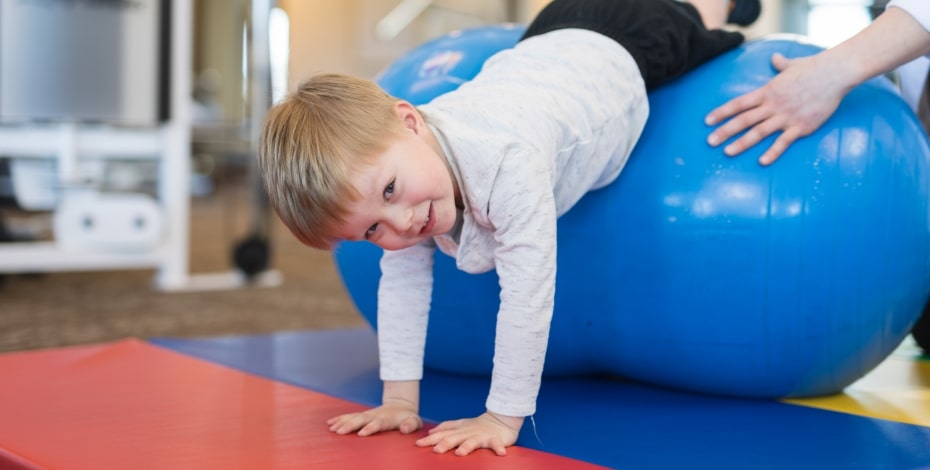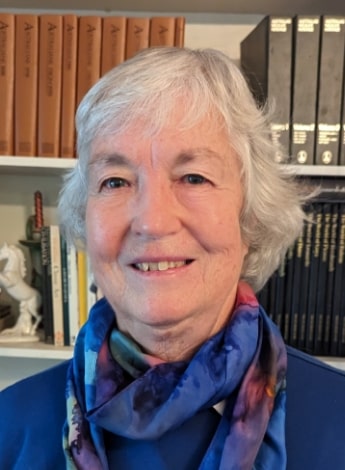
Curious minds and burning questions

The Physiotherapy Research Foundation has been supporting physiotherapists for 35 years. Here, Elizabeth Williams talks about her career and her research.
A self-described ‘free-range kid, who sprained ankles or broke toes’ growing up on the family farm outside of Echuca in northern Victoria, Elizabeth Williams OAM APAM says it was only a matter of time before she was introduced to physiotherapy.
‘One injury led me to the local physiotherapist in Echuca,’ says Elizabeth.
‘She was just marvellous and opened my eyes to what was possible in the profession.’
That consultation led to a six-decade career and the academic proudly remains curious about improving paediatric care.
‘Physiotherapy attracted me and I was fascinated by the physics and the biology.
‘I became a paediatric physiotherapist because I loved the placement at the Royal Children’s Hospital.
‘Placement was three weeks in those days.
‘The hours suited my circadian rhythm—I’m an early person—and kids are better in the morning.
‘Kids are also honest about how they are feeling, even if it’s non-verbal.’
A recipient of grants throughout her career, including a National Health and Medical Research Council PhD scholarship, Elizabeth credits a Seeding Grant from the Physiotherapy Research Foundation (PRF) in 1998 with ‘giving her confidence’ to advance her credentials.
‘When I graduated it was with a diploma and while I worked in academia—tutoring and lecturing at the University of Melbourne and helping to develop a subject on growth and development—I had a family and didn’t get the opportunity to upgrade to a bachelor’s.
‘I was possibly the only person at the university employed on a diploma so I really had to study.
‘The PRF enabled me to get my master’s, which took me 10 years.
‘It was a commitment.’
This year marks 35 years of the PRF, which has awarded more than $1.8 million in grants since 1990.
Elizabeth’s project was called ‘Investigation of the timed “Up and Go” test in children’ and she received $4976 to support her research.
Timed Up and Go is a test of basic or functional mobility in adults and had rarely been used in children.
Elizabeth’s research involved 176 children, collected ‘massive data’ and was published in 2007.
It was reported as a ‘meaningful, quick and practical objective measure of functional mobility’.

Elizabeth Williams received a PRF grant in 1998.
Elizabeth was awarded her PhD in 2019 as a senior fellow at the University of Melbourne.
Her doctoral studies investigated the effect of plagiocephaly on infant movement and found evidence for new, straightforward prevention advice.
They determined that tummy time, a well-known prevention standard, is not enough, recommending the addition of ‘face time’.
Her research paper has recently been published.
The retired physiotherapist still ‘has a burning question’.
‘I’ve applied for a grant to take the last step with my doctorate—Towards preventing plagiocephaly—to develop a free, web-based primary prevention initiative.
‘I feel I have unfinished business.’
Her career, however, has not been limited to young people.
Elizabeth worked in aged care and taught gerontology for 12 months to fourth-year students and other classes, such as ‘Movement Development through the Lifespan’, at the University of Melbourne.
‘Clinical education coloured my questions when I became an academic.
‘Evidence for change in children is so well confounded by growth and development—did the physio make a difference or was it going to happen anyway?
‘It has been our biggest battle with the medical profession for years, trying to prove that what we do makes a difference.
‘We are way ahead on that now.’
Elizabeth is grateful to a long list of colleagues and friends who have encouraged her over the years and says she could not have achieved the doctorate without neuroscientist and physiotherapist APA Honoured Member Professor Mary Galea AM.
She encourages her peers to pitch research ideas for a PRF grant.
‘I don’t like being in the limelight but I see merit in putting your hand up to say “Hey, I want to investigate this”.
‘Curious minds are important.
‘The profession and the world needs them and the PRF is there to support physios.
‘I’m still curious and I hope others are just as inquisitive.
‘If a younger physio reads this and applies for a grant, it would make me very happy.’
>> Visit the Physiotherapy Research Foundation for more information about its programs.
© Copyright 2024 by Australian Physiotherapy Association. All rights reserved.





